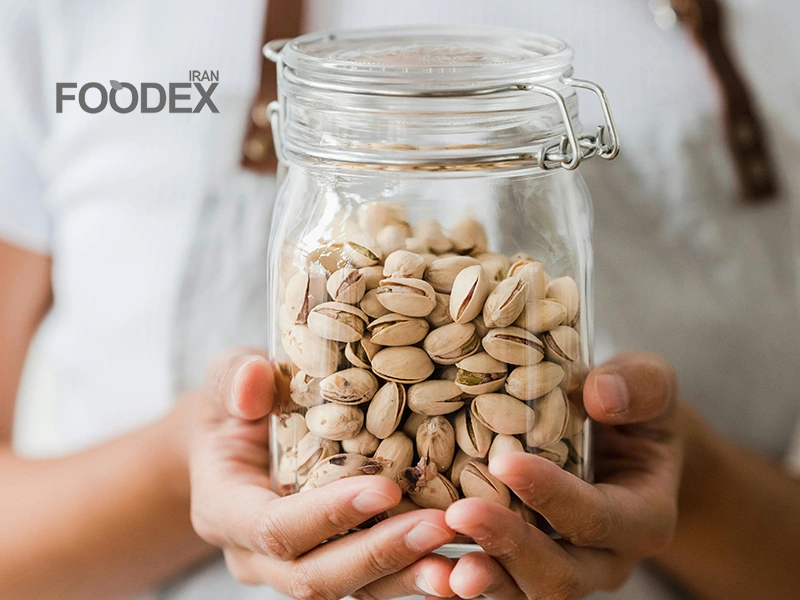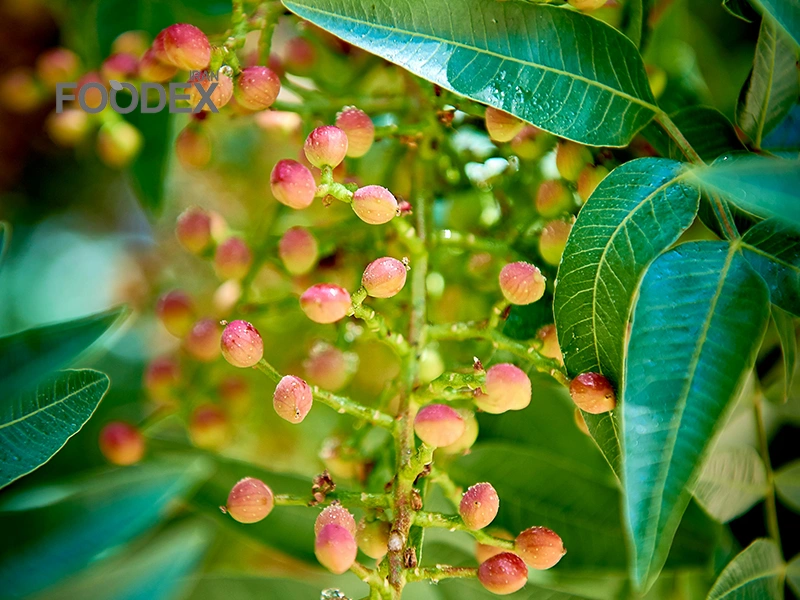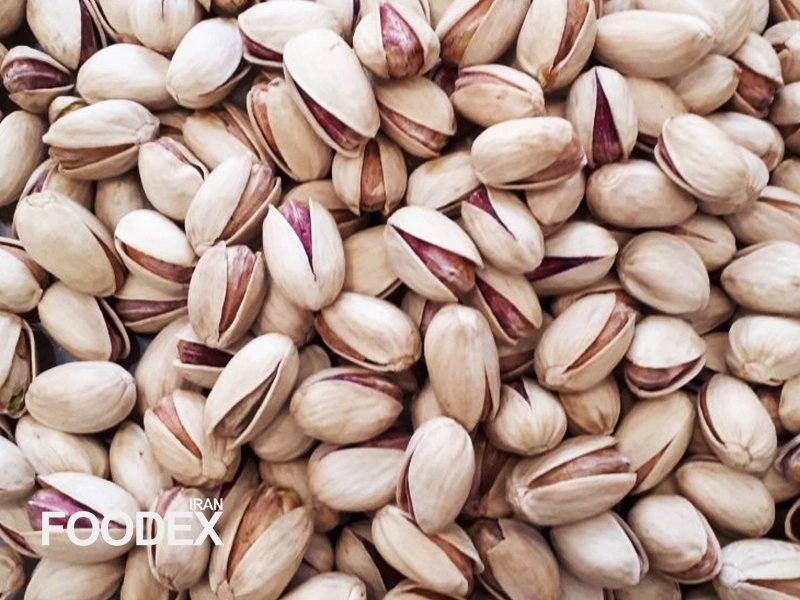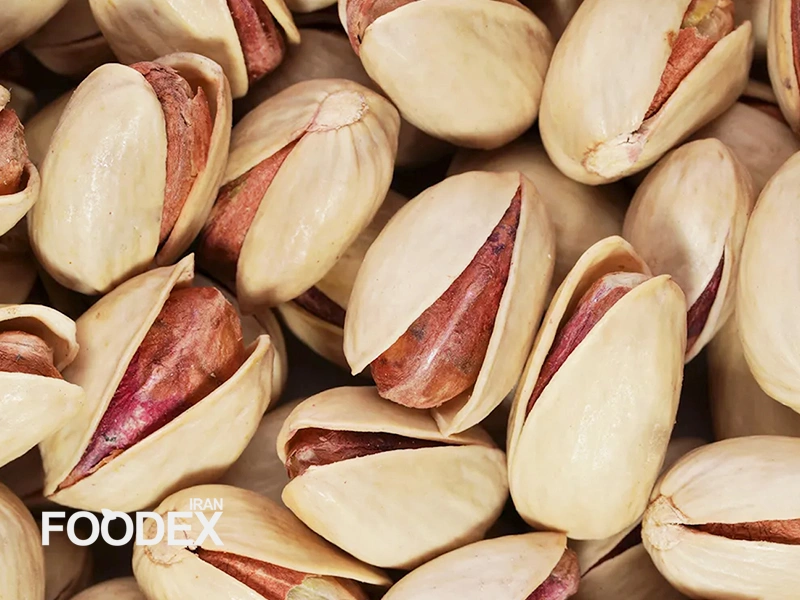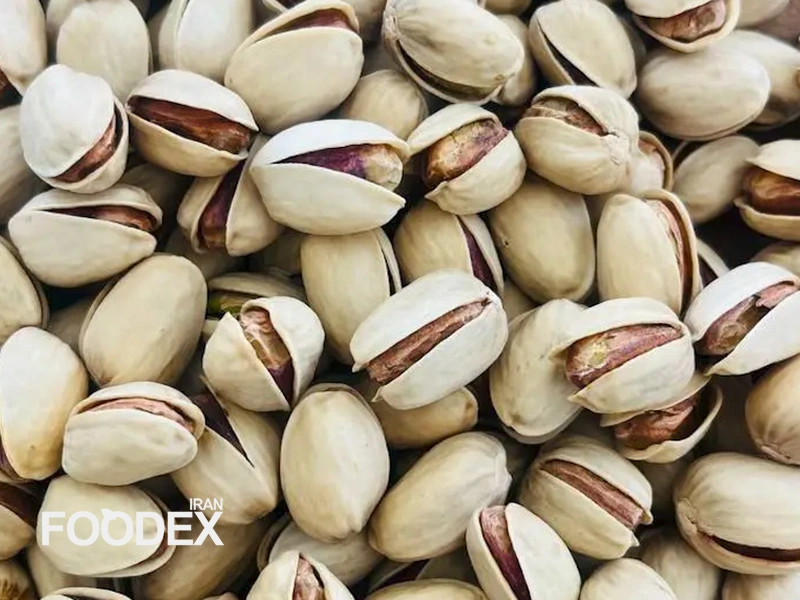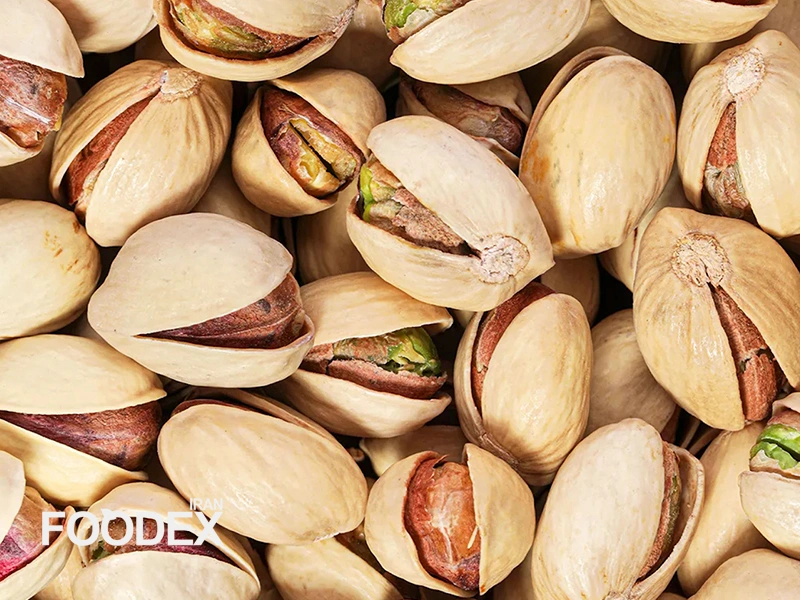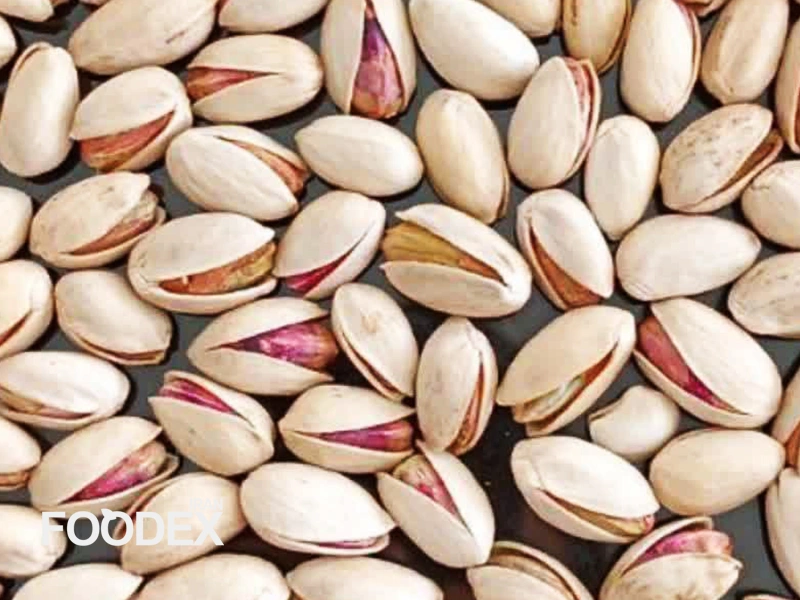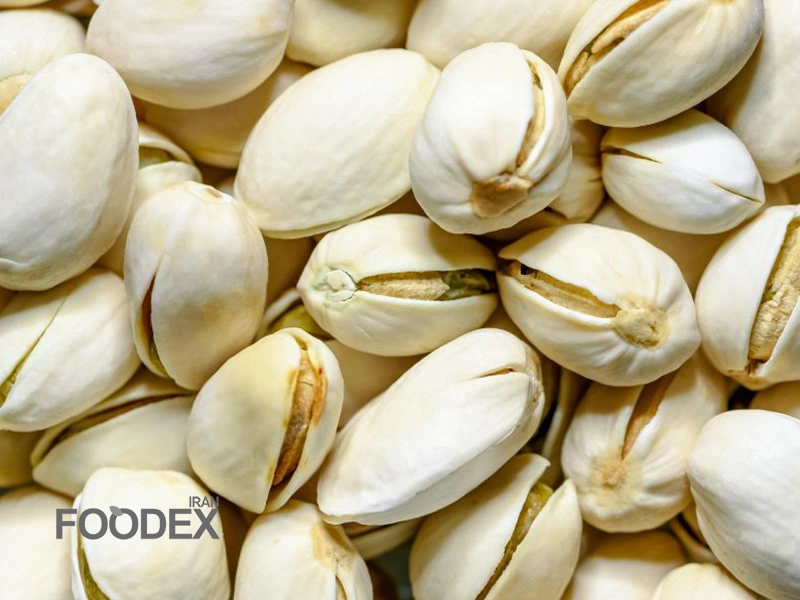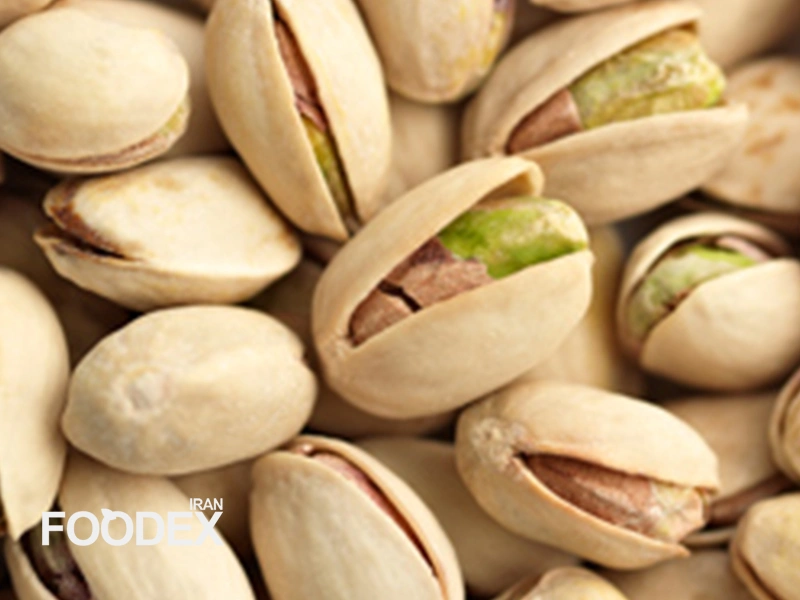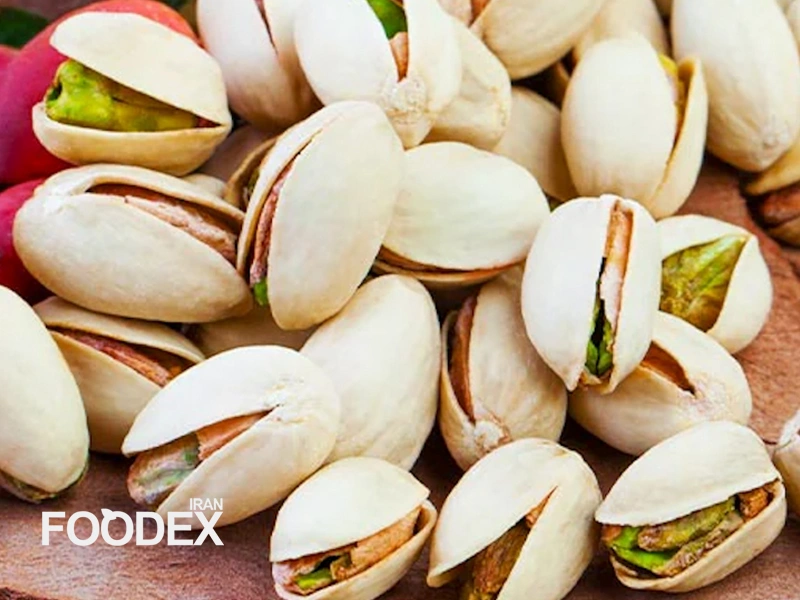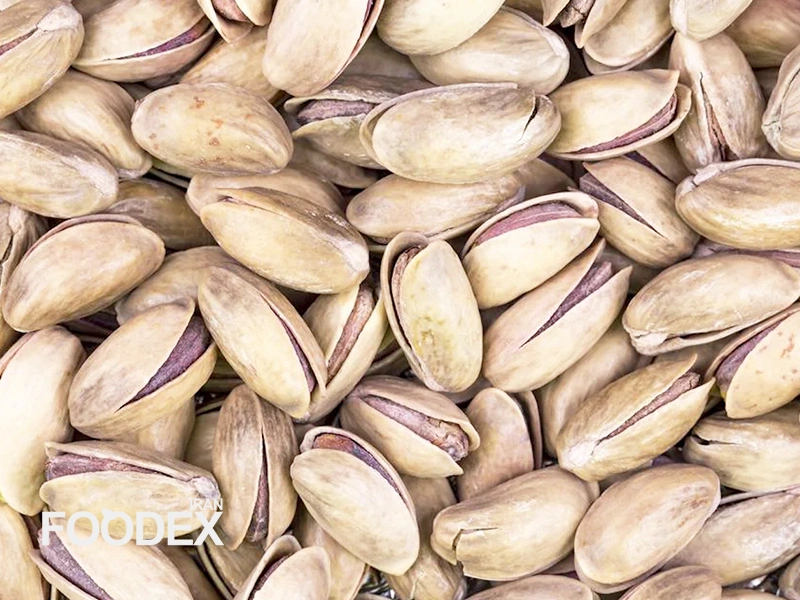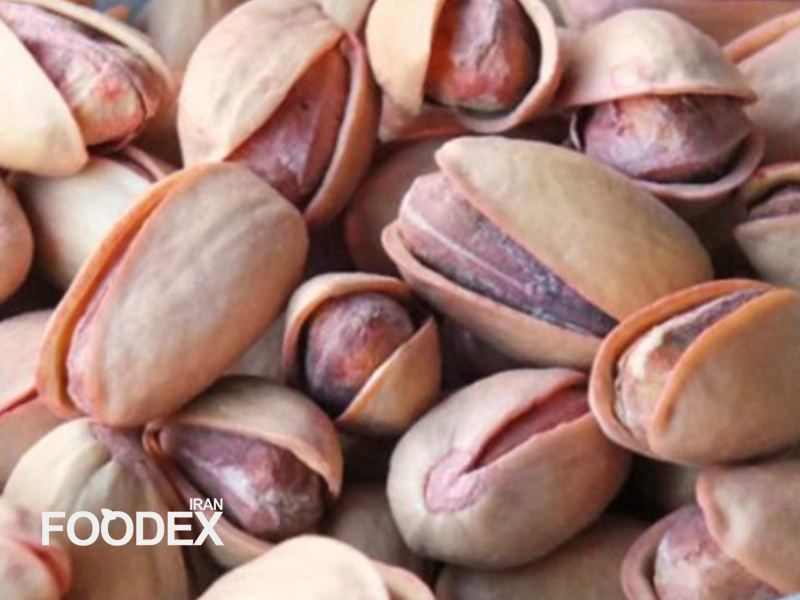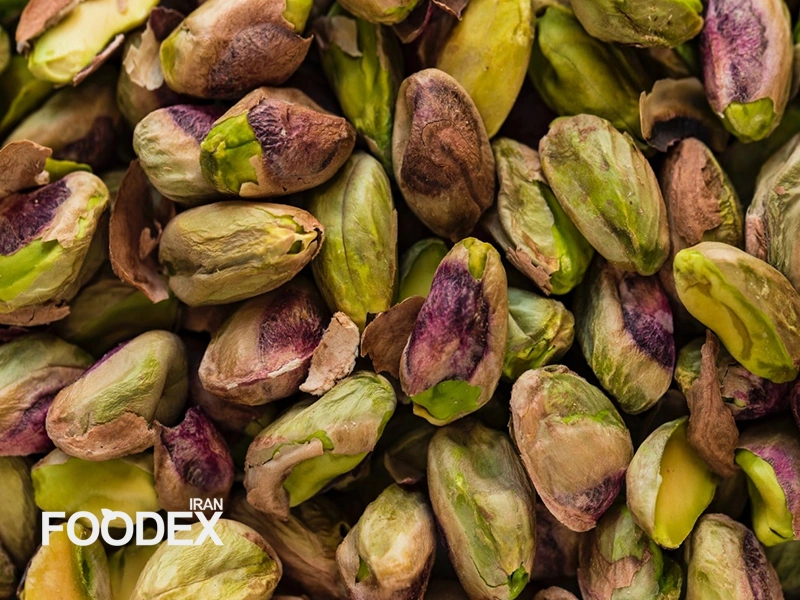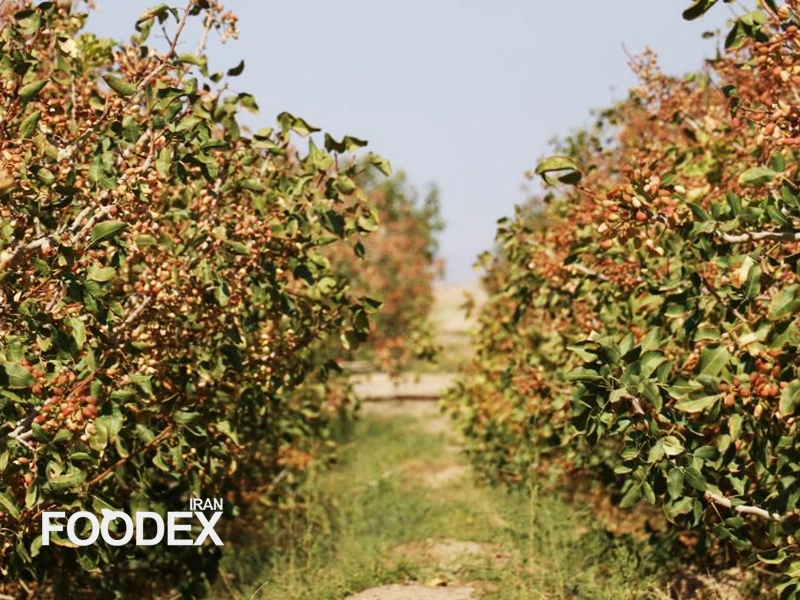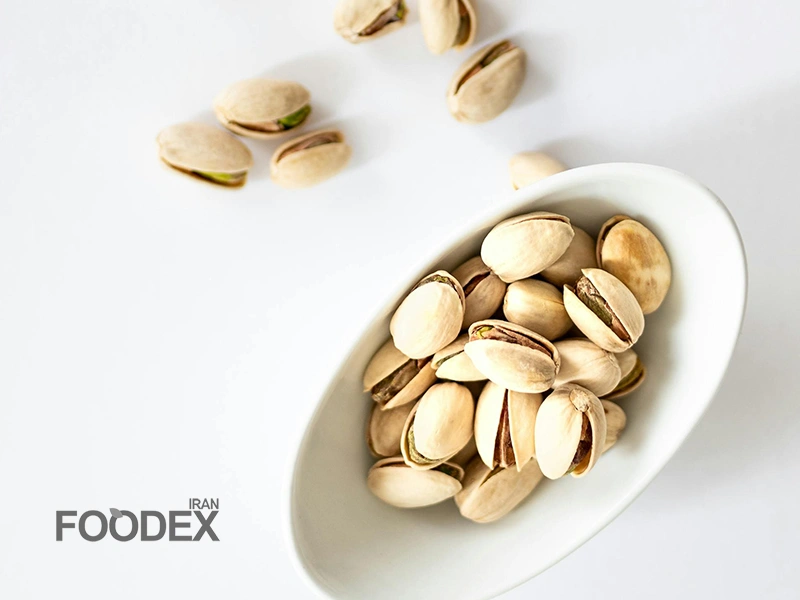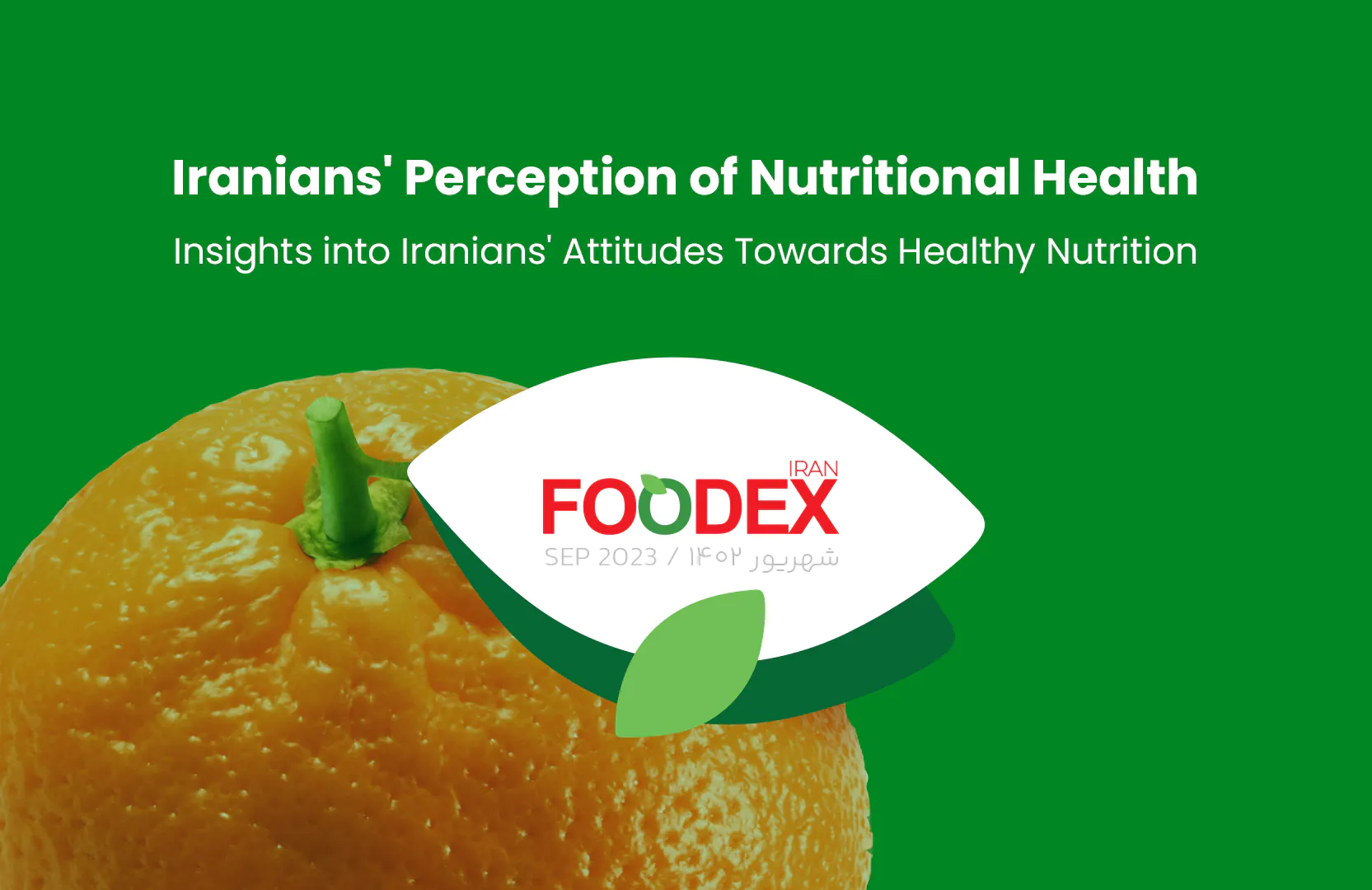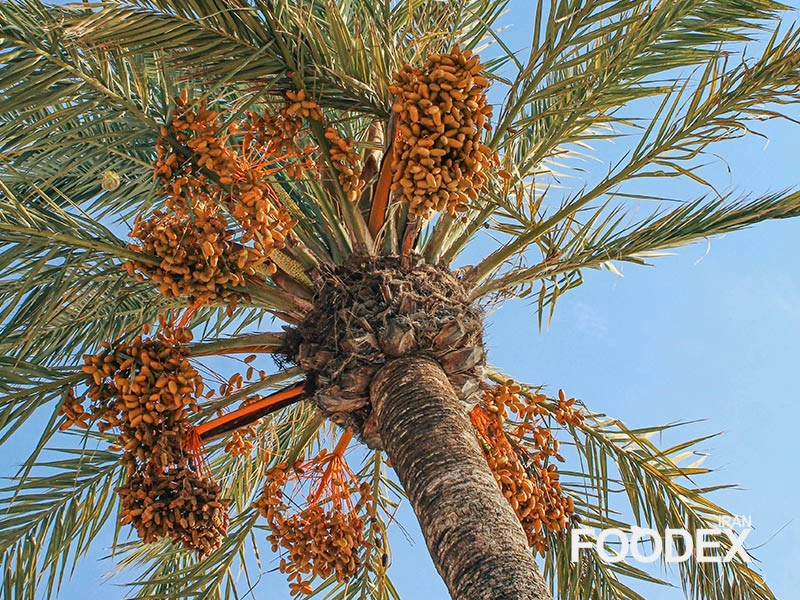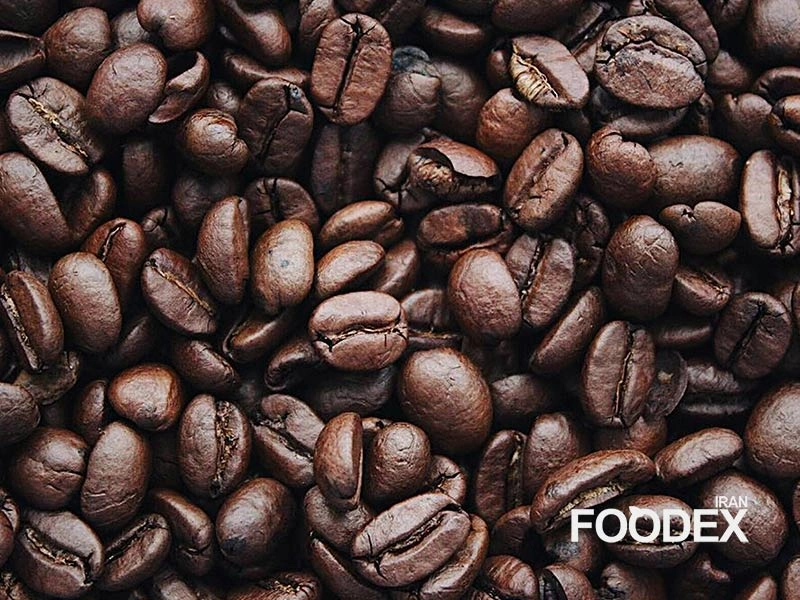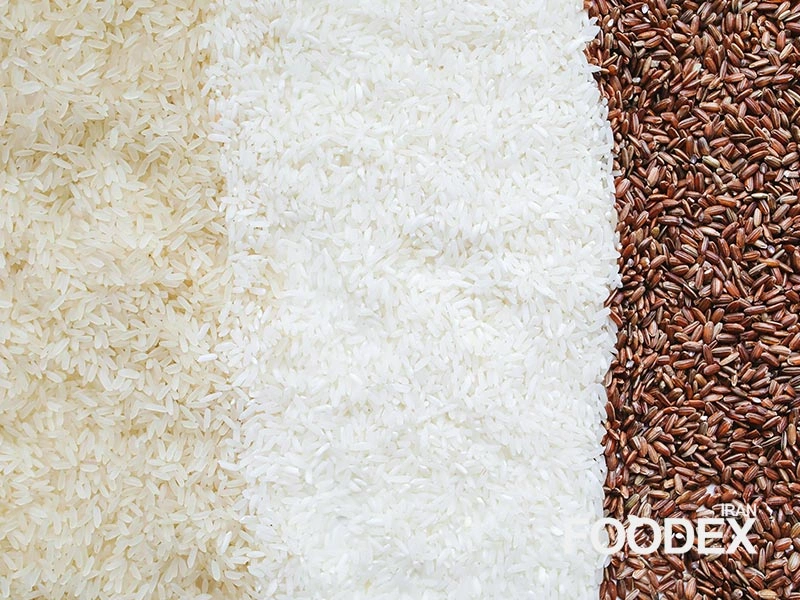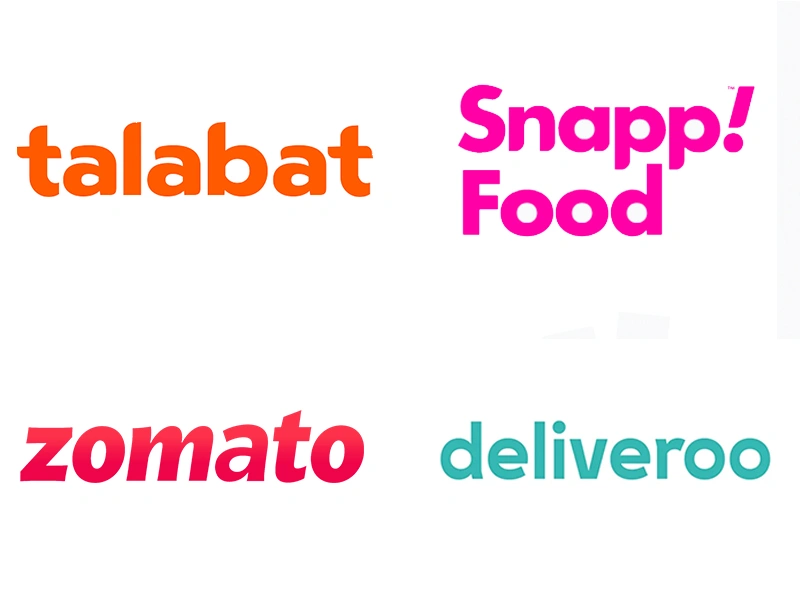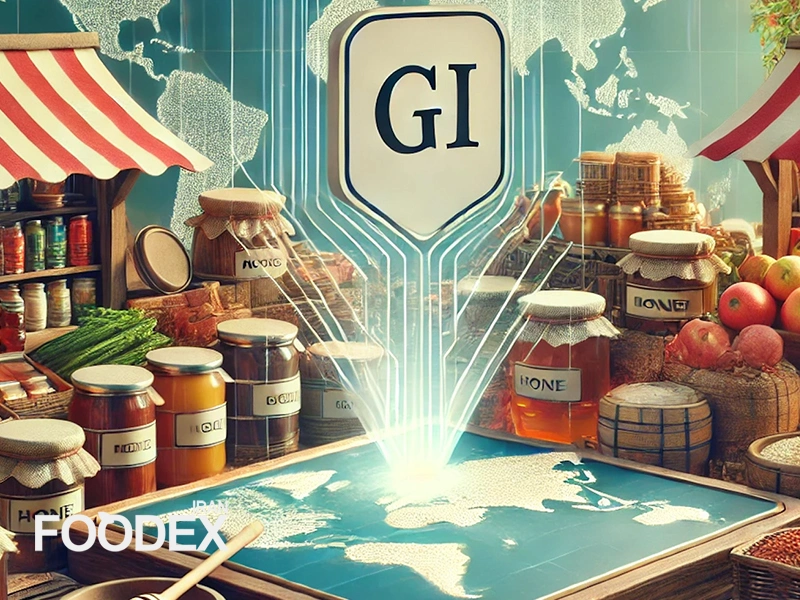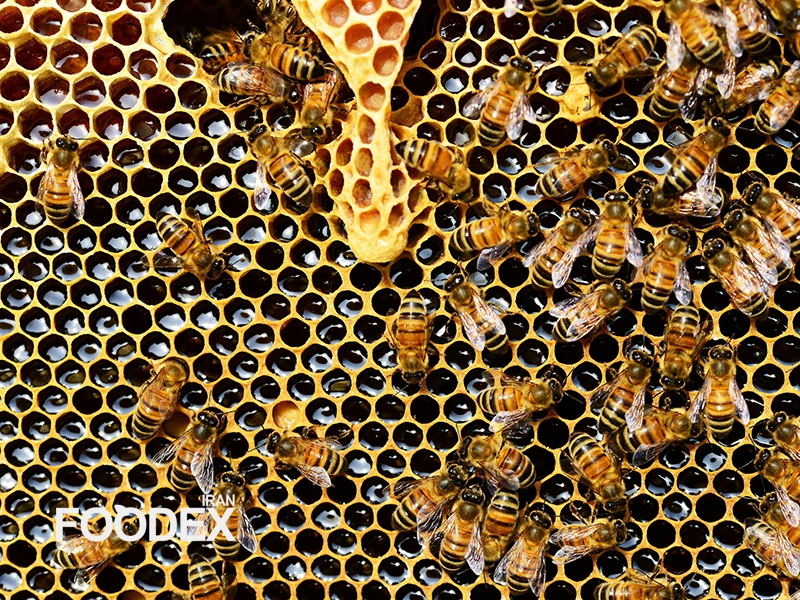Pistachios, the green gold of the culinary world, are among the most cherished and valuable nuts globally, with a history dating back thousands of years. Known for their rich flavor and versatility in cooking, pistachios also hold significant nutritional, medicinal, and economic value. In this blog by Foodex Magazine, we’ll dive into everything pistachio-related to help you better understand this incredible nut.
1. What Are Pistachios?
Plant Origin
Pistachios come from the pistachio tree (Pistacia vera), part of the cashew family (Anacardiaceae). Here are a few key facts about the tree:
Height: 5 to 10 meters.
Leaves: Compound, alternating leaves with oval-shaped leaflets.
Flowers: Small, clustered, and petal-free.
Fruit: A hard-shelled drupe, with the edible part being the pistachio kernel.
Nutritional Properties
Pistachio kernels are packed with nutrients that contribute to their health benefits:
Proteins: A rich source of essential amino acids.
Healthy fats: Contains unsaturated fats like oleic and linoleic acids.
Vitamins and minerals: Full of vitamin E, B6, potassium, magnesium, and phosphorus.
Antioxidants: Includes lutein and zeaxanthin, supporting eye health.
2. Pistachio Varieties
Pistachios come in many varieties based on where they’re grown, their size, shape, flavor, and commercial qualities. Below are some well-known varieties from both Iran and other global producers.
2.1. Iranian Pistachios
Iran, as one of the largest pistachio producers globally, offers several high-quality varieties of pistachios that are popular worldwide.
Ahmad Aghaei Pistachio
Long, light-colored shells and bright green kernels.
Mild, pleasant flavor.
Great for fresh consumption and exports due to its appealing look.
Akbari Pistachio
The largest pistachio variety with long, elegant kernels.
Known for its premium taste and luxurious appearance.
Often found in high-end markets and gift packages.
Kalleh Ghouchi Pistachio

Large, round kernels with open shells.
Rich, robust flavor.
Popular for both local consumption and export markets.
Fandoghi Pistachio
Small, round kernels with tough, open shells.
More affordable and ideal for processing.
Used extensively in food industries for making ice creams, sweets, and chocolates.
Badami Pistachio
Almond-shaped, long, and narrow kernels.
Pleasant flavor, perfect for fresh snacking and food processing.
2.2. American Pistachios
The U.S., particularly California, is another significant pistachio producer with its unique varieties.
The Biggest Pistachio Companies
Visit Food FairKerman Pistachio
Originally from Iran, now widely grown in California.
Large, open shells with slightly yellow-green kernels.
Mild flavor, widely used in the food industry.
Peters Pistachio
Mainly grown as a pollinator for the Kerman variety.
Golden Hills & Lost Hills
Newer varieties developed for higher yield, early harvest, and disease resistance.
2.3. Turkish Pistachios
Turkey produces its own local varieties, especially in the southeastern region.
Antep Pistachio
Smaller kernels with a distinct, strong flavor.
Used in traditional sweets like baklava.
Siirt Pistachio
Larger than Antep, with thinner shells.
Great for fresh eating and processing.
2.4. Australian Pistachios
Australia has developed unique varieties suited to its climate.
Sirora Pistachio
Small to medium-sized kernels with darker shells.
High disease resistance and excellent taste, popular both domestically and for export.
3. Commercial Pistachio Classifications
Beyond varieties, pistachios are categorized based on key characteristics.
Open-Shell Pistachios: Pistachios whose shells naturally open during growth.
Closed-Shell Pistachios: Require mechanical cracking for consumption.
Raw vs. Roasted: Pistachios are available raw or roasted, often with added salt.
In-Shell vs. Shelled (Kernel): Pistachios can be sold in-shell or with the shells removed, ideal for cooking, baking, or snacking.
4. The Global Pistachio Market
Pistachios are a global commodity with significant production and trade across various regions.
Iran: The largest producer, accounting for about 50% of the global pistachio supply.
United States (California): Produces roughly 40% of the world’s pistachios.
Turkey: A smaller but notable producer, primarily serving domestic markets and nearby regions.
Major Importers
China, EU countries, India, and Russia are among the top markets for pistachio imports.
5. Pistachio in History
Ancient Times
Originating in Iran and the Middle East over 3,000 years ago, pistachios were considered a delicacy in the royal courts of empires like Rome and Greece.
Silk Road Trade
Pistachios traveled along the Silk Road, reaching as far as China.
Modern Era
The U.S. began growing pistachios in California in the 19th century, and since then, the industry has flourished, now competing with Iran for global market share.
6. Cultivation and Harvesting Pistachio
Climate
Pistachios thrive in dry, semi-arid climates with hot summers and cold winters.
Soil
They prefer sandy-loam soils with good drainage and can tolerate higher soil salinity than most crops.
Planting
Pistachios are typically propagated via grafting onto hardy rootstock.
Harvesting
Takes place in late summer to early fall, with mechanical shaking of trees or hand-picking.
7. Nutritional and Health Benefits
Rich in Protein: Supports muscle repair and overall health.
Heart Health: High in unsaturated fats, which can lower bad cholesterol (LDL) and raise good cholesterol (HDL).
Antioxidants: Contains compounds like lutein, promoting eye health and protecting against cellular damage.
Weight Management: Pistachios are filling, helping control appetite and manage weight.
8. Pistachio Uses
Pistachios are widely used across various culinary applications:
Fresh Snacking: A healthy, nutrient-packed snack.
Baking & Sweets: Essential in making desserts like baklava, ice cream, and halva.
Culinary Uses: Featured in pilafs, curries, and salads.
Pistachio Oil: A high-quality oil used in gourmet cooking.
9. Packaging and Storage
Ideal Packaging
Pistachios need protection from air, moisture, and light, making vacuum-sealed, dark packaging ideal.
Storage Tips
Store pistachios in a cool, dry place to maintain freshness for up to six months or refrigerate to extend shelf life.
10. Economic and Social Impact
Job Creation
Pistachio farming supports rural communities by creating jobs and boosting local economies.
Export Growth
It plays a crucial role in non-oil exports for countries like Iran, contributing significantly to national income.
Conclusion
Pistachios are a remarkable nut with a long history, endless culinary uses, and numerous health benefits. Whether grown in Iran, the U.S., or other parts of the world, they remain a highly valuable and sought-after product in the global market.
FAQ
What sets Iranian pistachios apart from American pistachios?
Iranian pistachios offer greater variety (such as Akbari, Ahmad Aghaei, and Fandoghi) and are renowned for their rich flavor and aroma. American pistachios, primarily of the Kerman variety, are valued for their standardized processing and quality control.
How can you identify high-quality, authentic pistachios?
High-quality pistachios have naturally open shells, intact kernels, and vibrant green to dark green kernels. They should also have a fresh aroma and a mild, pleasant taste.
Which countries are the leading producers of pistachios worldwide?
Iran and the United States are the top pistachio producers globally, with Turkey and Syria also contributing significantly to the market.
What are the key health benefits of pistachios?
Pistachios are rich in protein, unsaturated fats, vitamins, and antioxidants like lutein. They support heart health, aid in weight management, and improve eye function.
How should pistachios be stored to maintain their freshness?
Store pistachios in airtight containers, away from moisture and direct light. For extended shelf life, refrigerate or freeze them.
Sources
FAO (Food and Agriculture Organization of the United Nations)
www.fao.org/faostat/
International Nut and Dried Fruit Council (INC)
Annual Reports on Pistachio Production and Trade.
www.nutfruit.org
American Pistachio Growers Association
Information on U.S. Pistachio Varieties and Industry Standards.
www.americanpistachios.org
Iran Pistachio Association
Reports on Iranian Pistachio Varieties and Export Markets.
www.iranpistachio.org
Zevering, C. E., & Benkeblia, N. (2018).
Pistachio: Production, Nutritional Value, and Health Benefits.
Publisher: Nova Science Publishers.
Tsao, R., & Zhou, T. (2007).
Pistachio Nuts: Composition and Health Benefits.
Journal: Food Research International, 40(7), 649-658.
World Health Organization (WHO)
Guidelines for Safe Consumption of Agricultural Products
www.who.int
U.S. Food and Drug Administration (FDA)
Aflatoxin Control in Nut Products
www.fda.gov
Ehsan Allahverdi
Executive Manager of Foodex Iran
Marketing Consultant for Leading Food & Beverage Brands
website | linkedin

